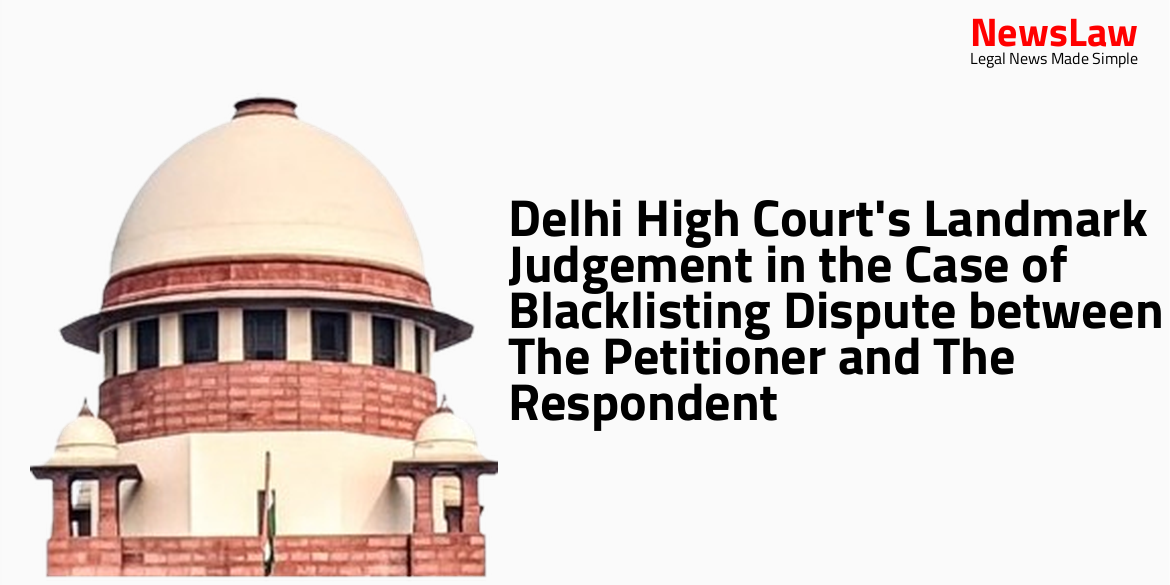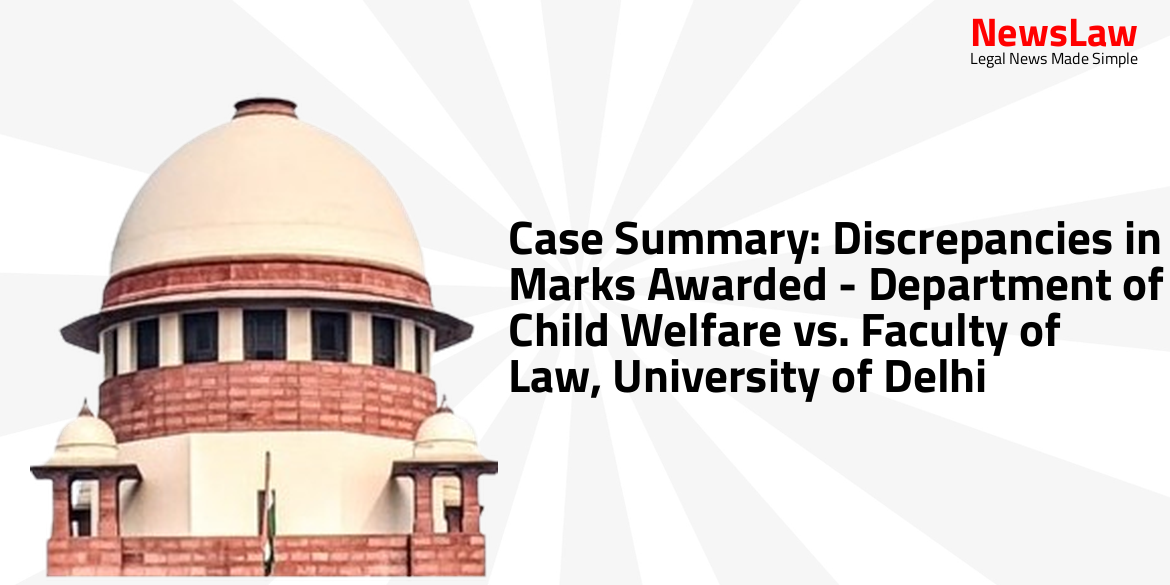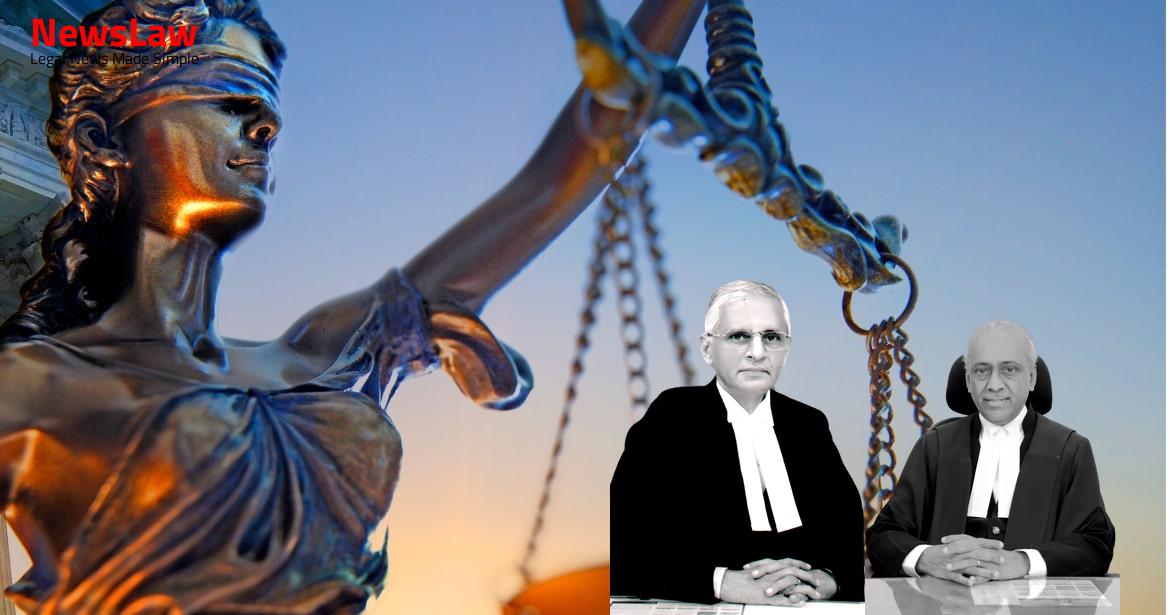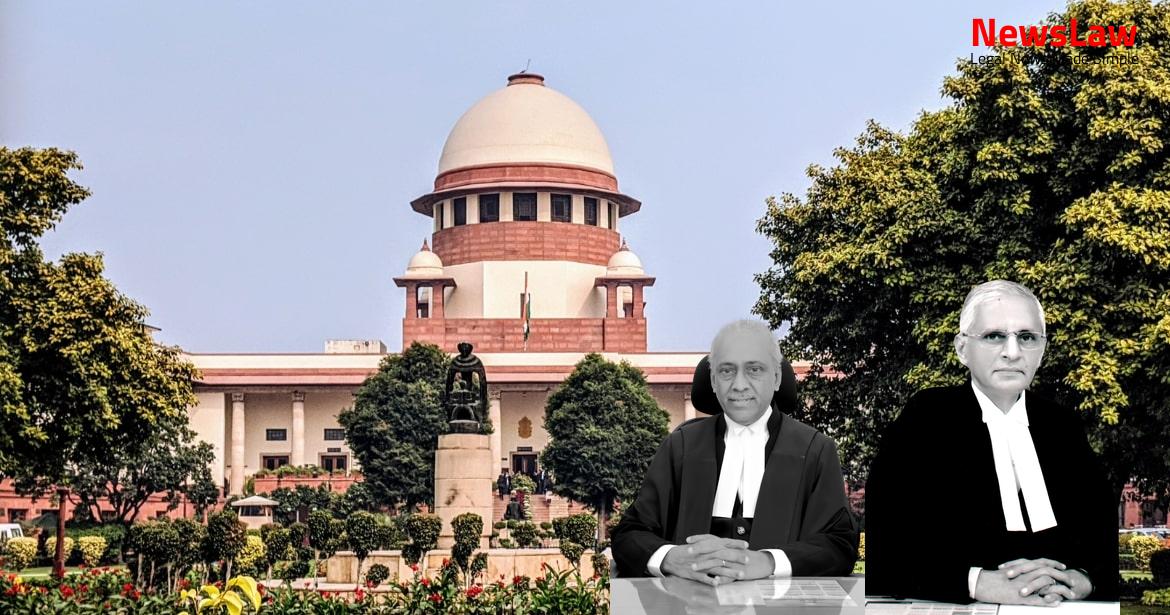In a prominent legal case before the Delhi High Court, the dispute of blacklisting between The Petitioner and The Respondent has been resolved. The court’s judgement underscores the necessity of adhering to principles of natural justice in cases of blacklisting. This blog delves into the details of the case and the key considerations put forth by the court.
Facts
- The Petitioner placed its bid and was awarded the tender for a total contract amount of Rs.38.27 Crores.
- Impugned work load returns issued for quarters ending in December 2020 and March 2021, Petitioner not considered for handling more workload due to serious defects in work.
- Co-ordinate Bench of the Court found adverse remarks tantamount to blacklisting Petitioner without reason or hearing.
- No show cause notice issued to Petitioner, awaiting report from Technical Board of Officers on defects in work.
- Technical Board of Officers report indicates faults in building design leading to leakage/seepage issues at specific locations.
- Recommendation for strict action against the designing consultant based on Technical Board report.
- Petitioner received commendations for work prior to adverse remarks, grudge believed to arise after a favorable award in 2013.
- Work on buildings completed in 2010, issues surfaced after lapse of defect period which cannot justify adverse work load return.
- IIT Roorkee and Technical Board reports highlight design faults, conflicting with IIT Delhi report relied upon by Respondent.
- Respondent issued show cause notice based on IIT Delhi report indicating shoddy work of Petitioner.
Analysis
- Blacklisting has severe consequences and can lead to the civil death of a person.
- Strict adherence to principles of natural justice is crucial when blacklisting an entity.
- Blacklisting prevents a person from entering into government contracts, depriving them of opportunities.
- Parties must be heard and given an opportunity to represent their case before blacklisting is imposed.
- Notice must specify grounds for blacklisting to enable the affected party to respond.
- Blacklisting creates a barrier between the blacklisted entity and the Government in transactions.
- Blacklisting is stigmatic in nature and debars a person from participating in government tenders.
- Compliance with the principles of natural justice is essential before blacklisting any person.
- Blacklisting has long-lasting civil consequences for the future business prospects of the blacklisted person.
- Non-observance of natural justice principles can invalidate blacklisting for future contracts.
- The Technical Board of Officers (TBOO) has recommended timely start of remedial measures for structural distress.
- The TBOO has attributed leakage seepage issues to deficiency in design service by the consultant.
- The decision not to award further work to the Petitioner was based on the perceived defective work.
- The TBOO emphasized the need for surgical precision in executing rehabilitation work.
- Deficiencies were noted in visualizing and resolving issues during site visits.
- The notice of blacklisting should specify grounds and proposed actions clearly.
- Failure to provide a reasonable opportunity to defend oneself violates principles of jurisprudence.
- The adverse remarks and stigma imposed on the Petitioner without proper notice are unjust.
- The Apex Court has outlined principles of natural justice in similar cases.
- Blacklisting affects eligibility for government contracts and reputation of the blacklisted party.
- The lack of clear mention of blacklisting in the show-cause notice hinders due process.
- Recommendations include reconsideration of enlisting authority for consultant’s deficiency and strict adherence to repair guidance from IITD.
- The report attributes defects to design faults, questioning the validity of the blacklisting notice.
- The adverse remarks in the work load report against the Petitioner have been expunged.
- The observations made in the work load report have been overturned.
- The negative comments regarding the Petitioner’s workload have been removed.
Decision
- The Writ Petition is allowed.
- Pending application(s) are disposed of.
- Fresh Show Cause Notice can be issued to the Petitioner by the Respondents if they still believe the Petitioner is at fault for seepage/leakage.
- Consultation with IITD or similar specialist agency is recommended for continuous consultation during repairs.
- Utmost care is required in use & maintenance of the structure.
- Alterations like mobile towers, solar plants etc should only be done after consultations with all stakeholders.
- Systematic and timely disposal of rainwater must be ensured.
- Deliberations and analysis in the Board Papers may be shared if considered in Special repair work for better appreciation of the problem and targeted repairs.
- Leakage, seepage, and structural distress in the buildings is primarily due to deficiencies in designing by the design consultant, not the Petitioner.
- The adverse remarks on the work load returns against the Petitioner cannot be allowed to stand.
- Blacklisting of the Petitioner cannot be done solely based on the report of IIT Delhi without giving the Petitioner an opportunity to defend itself.
Case Title: KTECH ENGINEER BUILDERS CO. PRIVATE LIMITED Vs. UNION OF INDIA & ORS. (2024:DHC:4352)
Case Number: W.P.(C)-7799/2021



